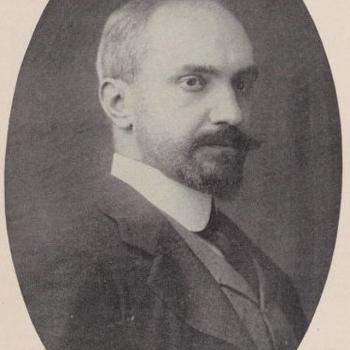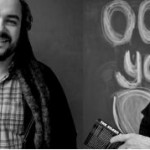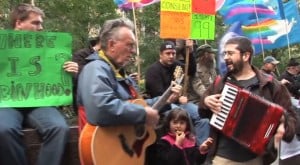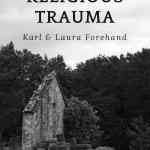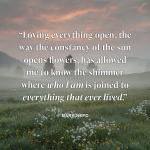
How did I come to experience the Cosmic Christ? Appropriately enough, my path led through the great world religions to a culmination of perception and belief.
I was born in India in 1952, and I was born to Protestant parents. But from the beginning of my life, I knew that there could not be one answer, one faith that covered all bases, because I lived in a sacred world in which all avenues to the divine were considered holy. I had Protestant parents; I had a Catholic nanny; I had a Muslim driver who stopped the car in the middle of traffic, rolled out his carpet, and prayed to Allah.
And very early on in my life, at five, I met a great Indian saint. Her name was Shanti, and she was a big fat woman, wrapped in white, who used to go and visit my godmother, who lived upstairs, every afternoon, whom I knew just as Shanti but actually turned out later, I discovered, to be a woman who had healed thousands and thousands and thousands of people. I used to jump into bed between the two of them, and Shanti would speak to me of the mysteries of the universe.
And one day she said to me, “When I died, I went through a great tunnel of light. And at the end of the tunnel I saw Krishna.” And I was very thrilled at the prospect of dying and going through this tunnel and seeing Krishna, but she said, “You won’t see Krishna, because the face that the divine is wearing for you, because you’ve been born in a Christian family, that face will be Jesus.” And from that one remark, I came to understand how the Divine had cooked the food in many different ways for many different temperaments, and that my destiny at a very deep level lay in coming to engage with this face of God that was turned towards me, as an Englishman, born in India, of a father who had some Indian blood; as a person, in other words, destined to go on this evolutionary marriage of East and West.
I returned to England when I was nine, and for the next sixteen years I became an atheist and a Marxist because I was uncovering my parents’ imperial past and the horror of the way in which Christianity had been used to justify imperial oppression; I was massively over-intoxicated by my own intellect, so I thought I understood all the answers; and also because I was outraged at what was happening in the world, and none of the religions seemed to be interested in doing anything about it.
At the age of twenty-five, my whole world kept crumbling because I came to understand that, although I was a Fellow of All Souls at Oxford, you cannot live by irony and hors d’oeuvres alone. And so I went back to India, I went back to my birthplace. But I wasn’t going back to go to an ashram, I wasn’t going back to get a fancy name. I was going back broken and in despair and horribly disillusioned about the whole Western tradition, about religion in general, and now at that time about politics, staring even then into the face of the apocalypse that was just beginning to be evident.
In India I had a series of massive and unanswerable mystical experiences, and that gave me the passion to pursue a mystical path. And I had one great mentor on that path, and his name was Ramakrishna. Because I met in Ramakrishna someone who became the devotee of the Divine Mother and who revealed through his own being and his teaching how all the different paths are all reflections of the Mother’s mercy to humanity. And inspired by him, I went to the Himalayas and became initiated by a great, mystical Mahayana teacher, Thuksey Rinpoche. Inspired by him, I moved to Paris and worked with a great Sufi mystic who had been the translator of Rumi, Eva De Vitray-Meyerovitch, and her wild Sufi buddies. And inspired by him, I became the devotee at twenty-eight of a young woman, nine years younger than myself, Mother Meera, who I believed then was the incarnation of the Divine Mother on earth.
I also reawoke my passion for Jesus, because at the age of twenty-nine I went to Israel, and I had an overwhelming experience, standing in the field where Jesus gave the Beatitudes. To stand in that field in Tabgha, looking out across the Sea of Galilee, with these soft-breasted mountains around it, and the light pouring down, and the wildflowers growing in the wild grasses, was an experience of overwhelming beauty. And what I heard when I had this experience was, “Look around: the landscape that I am giving this revelation in is a maternal landscape. And read my Beatitudes and see that all the virtues that they are celebrating—of patience, of tenderness, of cherishing, of hunger and thirsting for righteousness—all these virtues are the virtues of the motherhood of God.” And that completely transformed my understanding of what Jesus’s message was and is.
I plunged into four years of meditation and mantra and desperate longing to be united with the Beloved. And when I was thirty-six I had an enlightenment experience, very small “e.” I was in Paris and I saw the whole universe vanish into divine white light and then reappear, saturated with that white light. I experienced the classic experience of knowing yourself one, not two, with the universal divine consciousness.
After a few months of exhilaration, however, I found myself being possessed by one question, one question which ate at me like a rodent in my stomach. And that question was: What is this experience for in a time like this? What is the way in which this awakening that has been given to me should be lived to respond as acutely, as urgently, as challengingly, as intensely, as wildly, as really, to what is really going on?
The first answer to that question came to me from His Holiness the Dalai Lama. I interviewed him in Oslo on the day that he won the Nobel Prize. And at the end of the interview I was totally incapable of getting out of the chair in which I was sitting, so invaded by his gorgeous sweetness and childlikeness. He pulled me up, I found myself breast to breast with him, and I said, “We’ll never be in this position again. What is the meaning of life?”
And the Dalai Lama answered the question that had been battering and shattering my nights and days, because he said very, very sweetly but very strongly, after laughing his famous and polyphonic laugh, he said: “The meaning of life is to embody the transcendent.” And as he said it, he communicated it. And I realized I was standing with somebody who was living that core meaning of not going off into mystical experiences and enjoying the sensational swirling around the universe that they can bring, but undergoing the rigor, the real rigor, the real discipline, the real passion, which is to be able to bring those experiences down so that they govern your intellect, so that they illumine your open heart, and so that over time they actually infiltrate the depths of your body and make the whole of your being Love’s being in action.
Then another question started to oppress me, and that question was: In a world exploding with agony and exploding with injustice and exploding with oppression, what does it mean to embody the transcendent? Does it mean going off into some monastery and endlessly praying and meditating and rinsing your body with golden light and coming out of it shining? Is that what it means? Or does it have some more ferocious challenge in it, at a time when the whole of human life is threatened and much of nature? And again and again, as I asked this question, I found myself going back to Jesus, going back to the poetry of Jesus, going back to the paintings of Jesus, going back to the Gospels, plunging into the great Christian mystics and finding in them—having been opened up by Buddhism, opened up by Hinduism, opened up by Sufism, opened up by my own awakening experience—a fountain of the most holy, dazzling wisdom.
But what I found in Jesus which I did not find with such intensity in any of the other teachers, revere them though I do, of humanity, what I found in him which I could not turn away from, which I could not not keep looking at, was his overwhelming anguished vulnerability to the real facts of power, and his total commitment of his total being, in everything he said and everything he did and everything he risked, not merely to transmit the truth but to see that the truth of God’s compassion and justice is actually enacted in political, social, economic, sexual transformation of all of the existing terrible and brutal facts of society. And that absolutely thrilled me, because in him and in the greatest mystics that were influenced by him, I could see what I had been lacking.
I had been lacking a focus of embodiment on real action in the burning world.
__________________________________________________________
To learn more about the upcoming Christ Path Seminar weekend being offered online and on-site in Pittsburgh, PA, 6/28/30, see http://www.christpathseminar.org/ai1ec_event/cosmic-christ-and-the-historical-jesus/?instance_id=123
To order the complete 12-DVD set of recordings from the first Christ Path Seminar weekend – including Andrew Harvey’s delivery of the full talk from which this post is clipped, see http://www.christpathseminar.org/participate-by-dvd/


